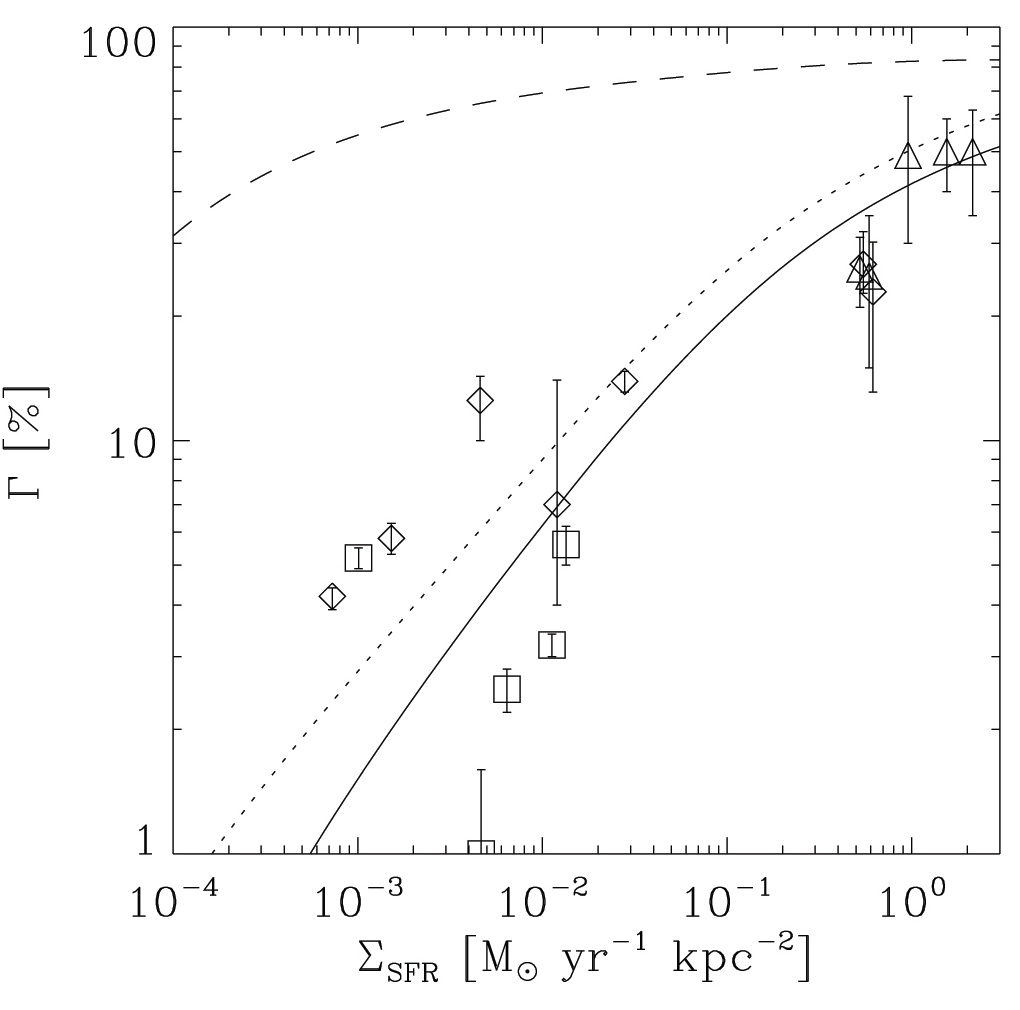
|
EPoS |
|
EPoS Contribution
|
|
The fraction of star formation occurring in bound stellar clusters
Diederik Kruijssen MPA, Garching, Germany | |
| The cluster formation efficiency (CFE), i.e. the fraction of star formation resulting in bound stellar clusters, is a key quantity that reflects (1) how the star formation process proceeds initially, and (2) how spatially concentrated the injection of energy into the ISM by feedback from young stellar populations is. During recent years it has been argued that the CFE is set by gas expulsion ("infant mortality"), tidal perturbations by GMCs in the natal environment (the "cruel cradle effect"), and the possibly inherently unbound nature of stellar associations. In this contribution, I will present an analytic theory for the CFE, in which all of these effects are accounted for. In this theory, the eventual CFE is largely determined by the properties of the ISM at the onset of star formation. The theory is shown to be in excellent agreement with observations. This allows the prediction of the spatial variation of the CFE throughout galaxies, as well as its variation in time and space over the galaxy population - from high-redshift starbursts to nearby quiescent galaxies. The presented theory has several applications within theoretical and numerical work, and I will propose tests to that can supply further observational verification. | |
 | |
| Caption: Fraction of star formation resulting in bound stellar clusters (Γ, the cluster formation efficiency or CFE) as a function of star formation rate density. Symbols denote observed galaxies with 1 sigma error bars. The dotted line shows the CFE due to stellar associations that are unbound by feedback, while the dashed line shows the contribution from the tidal perturbation of star-forming regions by surrounding GMCs. The solid line includes both effects for a fiducial parameter set, but can vary for different galaxy and ISM properties. | |
| Collaborators: Nate Bastian, Excellence Cluster Universe, Germany Steve Longmore, ESO, Germany Eli Bressert, ESO, Germany |
Key publication
|